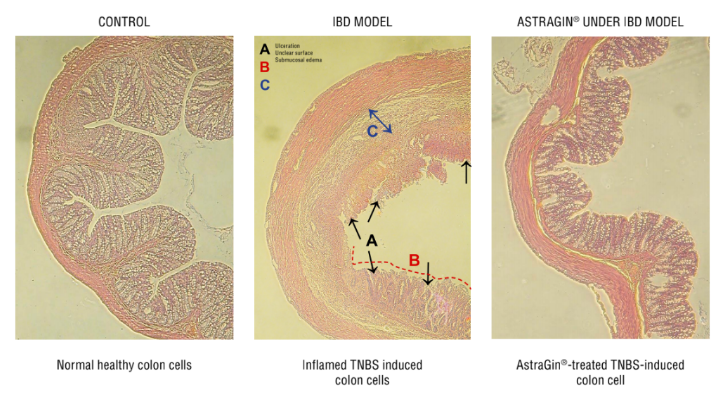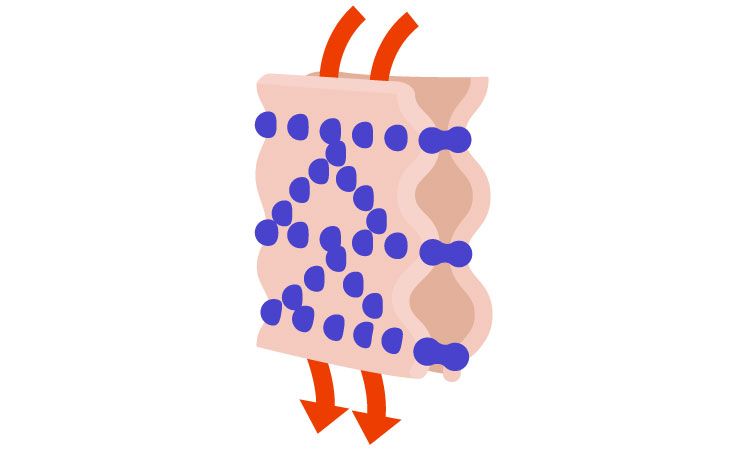A “tight junction” refers to the special connection between two adjacent cell membranes. This is where the two cells join and form a barrier, binding the cells together and preventing unwanted molecules from passing between the cells.
These connections are most common in epithelial cells, the cells that line the surfaces and cavities of the body to both separate the body from the outer environment, and separate areas within the body.
Epithelial cells are found on both inner and outer linings, including the inner lining of the intestinal wall, and the outer layer of our skin. Due to the epithelial cell’s role within the body, it is very important that they are tightly connected to keep control over the substances that pass through the barriers they create.
If molecules are unable to pass through the space between the cells, they need to find other ways to get through such as through the cells themselves. This allows the body to be much more selective on what it allows into the body and into the bloodstream.
Focusing on the Intestinal Epithelium
One of the epitheliums we have a particular interest in here at NuLiv Science is the intestinal epithelium. This is no simple barrier, but instead controls and regulates all kinds of complex functions.
The intestine is our main site for absorption, where all the digested matter we consume is determined vital and absorbed, or dangerous or unnecessary and excreted. The intestinal lining also houses our good bacteria and plays a large role in our immune response. Protecting the health of the intestinal wall and maintaining the strength of its tight junctions is very important to maintaining a healthy gut.
When the gut is damaged, say from ulceration or inflammation, the tight junctions could be at risk of loosening. Some studies on tight junctions have found that “intestinal inflammation compromises the integrity of the epithelial barrier leading to increased permeability and infiltration of pathogens.” Another study found that in studied patients, even when the epithelium appeared to be intact, there were already leaks; and the higher the inflammation, the higher the permeability.
We have done extensive research on the intestinal wall ourselves. Through this research, we have uncovered that our full spectrum gut health nutraceutical, AstraGin®, has demonstrated promising results to support the health of tight junctions and the gut wall. Through our in-vivo colitis study, we were able to see improved intestinal wall structure of tested rats, after supplementing with AstraGin® (see figure below).

AstraGin® displayed reduced ulceration and unclear surface of the intestinal wall where the intestinal epithelial cells are lined up next to each other in this study. Since tight junctions refer to the junction between two intestinal epithelial cells, this support to epithelial cells could result in strengthened tight junctions.
*These statements have not been evaluated by the Food and Drug Administration. This product is not intended to diagnose, treat, cure, or prevent any disease.
